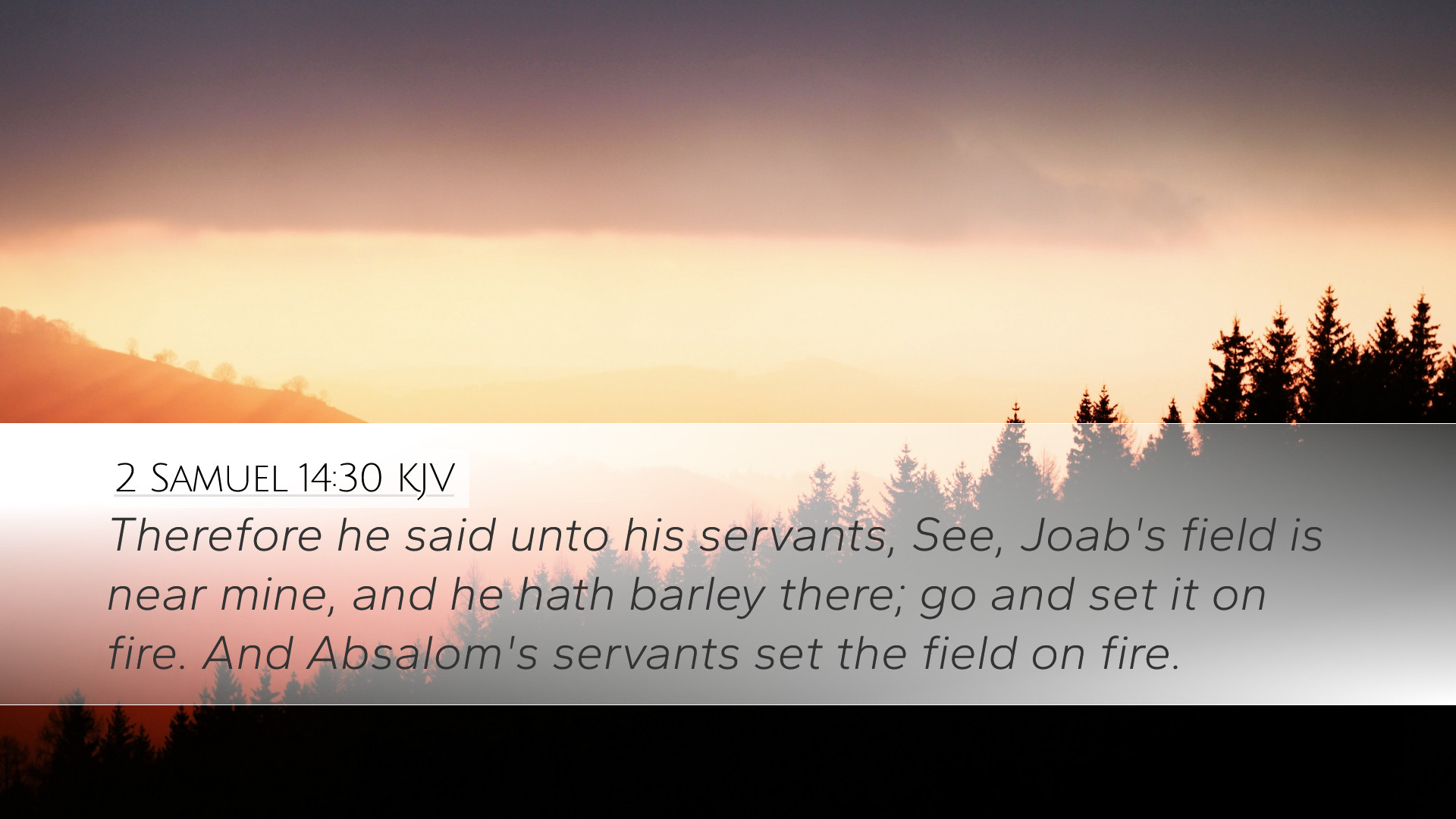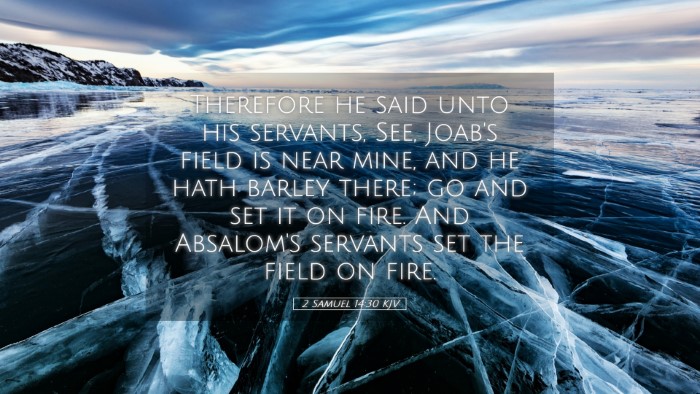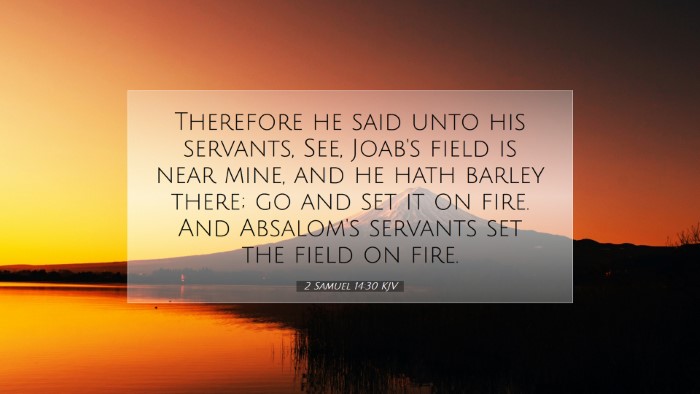Commentary on 2 Samuel 14:30
In 2 Samuel 14:30, we find a pivotal moment in the life of Absalom, son of David, that serves as a reflection of the overarching themes of rebellion, reconciliation, and the complexities of familial relationships within the Biblical narrative. This verse states:
“Therefore Absalom said unto his servants, See, Joab's field is near mine, and he hath barley there: go and set it on fire.”
Contextual Background
This passage occurs during a tumultuous period in David's kingdom, where familial strife leads to political instability. After the murder of his brother Amnon, Absalom flees to Geshur and is later summoned back by Joab, who desires to restore peace between the estranged father and son. However, Absalom's actions in this verse indicate a deeper unrest and a desire for recognition and vindication.
Analysis of Actions
Absalom's decision to set Joab's fields on fire serves multiple purposes. Firstly, it is an act of desperation, signaling his frustration with the lack of communication and restoration between himself and his father, King David. The use of fire is significant; it is both destructive and a means to draw attention. As noted by Matthew Henry, this reflects Absalom's impulsive nature and desire to force a resolution to his estrangement.
Symbolism of Fire
Fire in the biblical context often symbolizes judgment and purification. Albert Barnes elucidates that the act of burning represents not just a personal grievance but also a blatant challenge to authority, indicating that Absalom wishes to confront both Joab and David. It is an extreme measure, revealing the depths of his emotional turmoil.
The Role of Joab
Joab emerges as a central figure in this narrative. His relationship with both David and Absalom is complex; he acts as an intermediary who tries to maintain peace, yet he is also deeply entangled in the politics of the situation. Adam Clarke emphasizes Joab’s pragmatic approach, often finding himself in morally ambiguous positions as he seeks to achieve the king's objectives, even when it contradicts the king’s moral decisions.
Joab's Field
Absalom’s targeting of Joab's field carries layers of significance. It underscores his awareness of Joab's influence and his inability to communicate with David directly. The burning of barley could symbolize the burning away of diplomatic relationships, a sign of Absalom’s frustration that resonates with a larger narrative of rebellion against his father’s authority.
Thematic Reflection: Rebellion and Reconciliation
This incident highlights significant themes in the Biblical narrative—rebellion against authority and the quest for reconciliation. Matthew Henry argues that this act of violence and confrontation reflects a heart that is torn between wanting to restore connection and the impulse to act out in anger and frustration. Absalom’s relationship with David is marked by turmoil, rejection, and an unresolved longing for paternal acceptance.
Call to Action
For today’s pastors, theologians, and students of Scripture, this passage serves as a poignant reminder of the destructive potential of unresolved conflict and the human yearning for recognition and restoration. It invites reflection on how we handle relational estrangement and whether we seek constructive dialogue or resort to acts that could cause further harm.
Conclusion
2 Samuel 14:30 encapsulates a moment of intense emotional struggle, political maneuvering, and the eternal quest for familial reconciliation. The actions of Absalom stand as a cautionary tale about the consequences of unresolved tension and the desperate measures individuals may take when they feel unheard and unseen. As we delve deeper into the complexities of this narrative, we are encouraged to consider our responses to conflict, the importance of seeking peace, and the transformative power of reconciliation.


